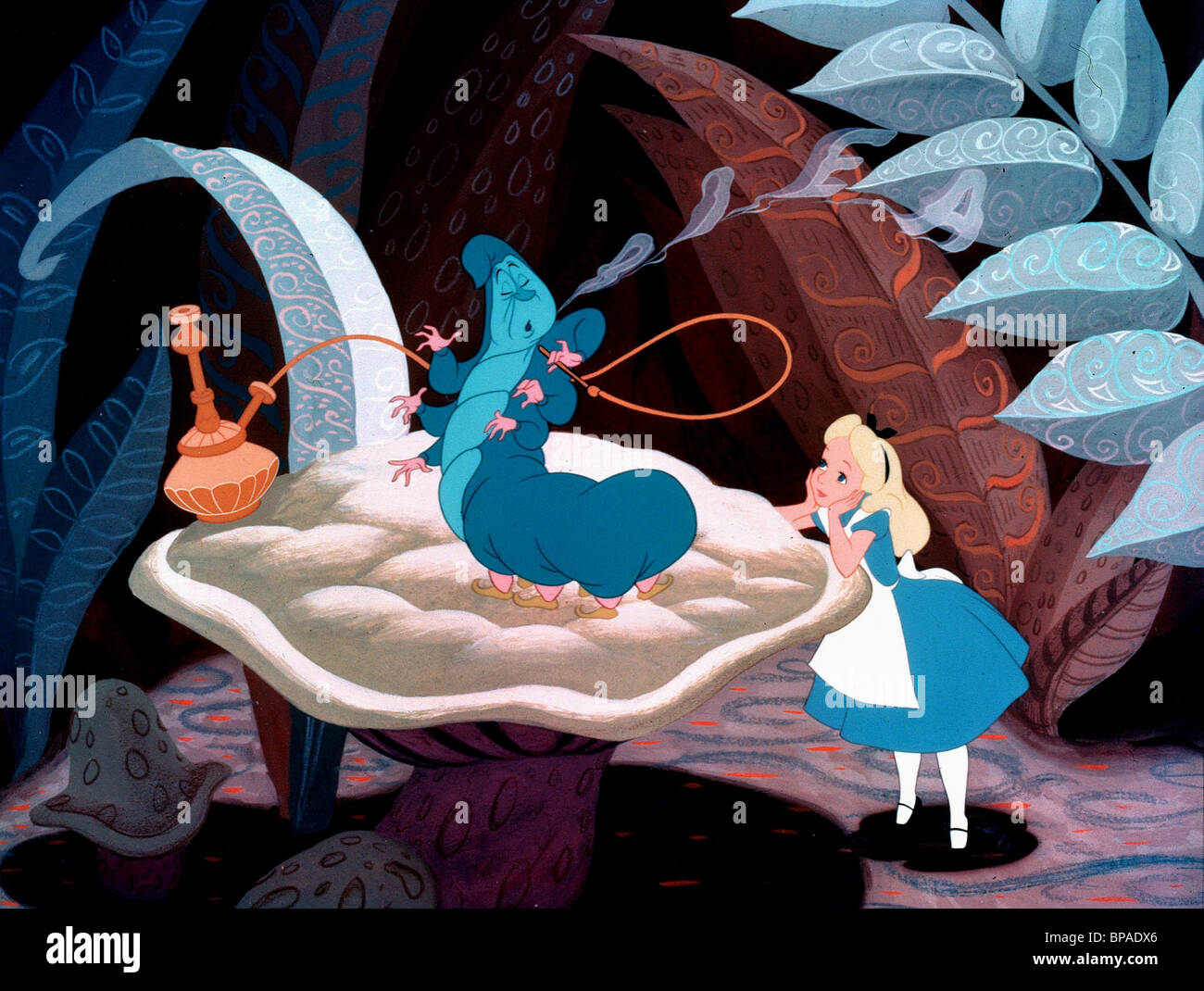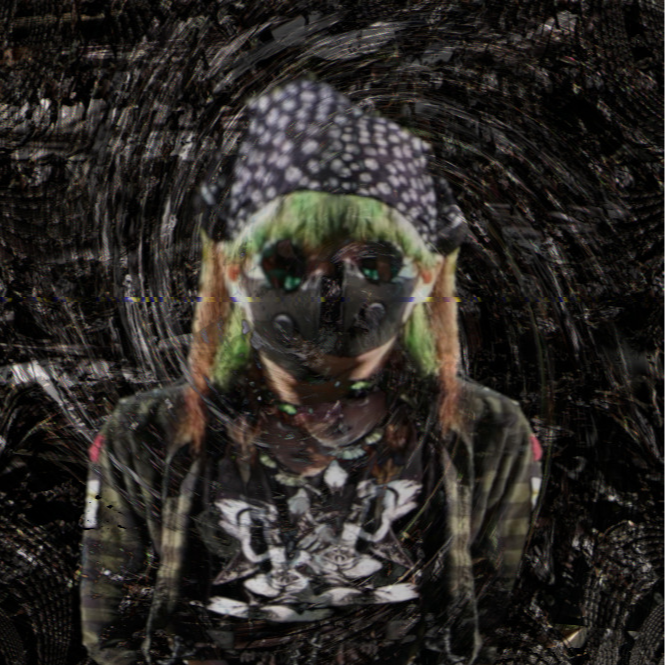Image text: @agnieszkasshoes: “Part of what makes small talk so utterly debilitating for many of us who are neurodivergent is that having to smile and lie in answer to questions like, “how are you?” is exhausting to do even once, and society makes us do it countless times a day.”
@LuckyHarmsGG: “It’s not just the lie, it’s the energy it takes to suppress the impulse to answer honestly, analyze whether the other person wants the truth, realize they almost certainly don’t, and then have to make the DECISION to lie, every single time. Over and over. Decision fatigue is real”
@agnieszkasshoes: “Yes! The constant calculations are utterly exhausting - and all under the pressure of knowing that if you get it “wrong” you will be judged for it!”
My addition: For me, in addition to this, more specifically it’s the energy to pull up that info and analyze how I am. Like I don’t know the answer to that question and that’s why it’s so annoying. Now I need to analyze my day, decide what parts mean what to me and weigh the average basically, and then decide if that’s appropriate to share/if the person really wants to hear the truth of that, then pull up my files of pre-prepared phrases for the question that fits most closely with the truth since not answering truthfully is close to impossible for me.
https://www.instagram.com/p/CvPSP-2xU4h/?igshid=MzRlODBiNWFlZA==
I’m old, but it took a lot of time to network/socialize. I know there’s books/material to socialize now. I have learned to grey rock, and just go neutral with giving a response to most situations.
This is a learned thing. No one teached us this back in the 80s or earlier. Life isn’t easy, we learn as we get older. Yes, it’s hard, but if some random person asks about your day, just say “great, how about you?”. Put the focus back on them. Let them talk. Just listen. Oh, their grandma passed away last week? “Damn, I’m sorry to hear that. Let’s remember her legacy, and know that she lived to her fullest.”
We are all still animals at the end of the day. You can make mistakes! Learn from them, and move on. Learn as you go.
deleted by creator
I believe that part of the problem - at least in my case - is that typical person immediately sees 3-4 possible generic answers to such questions.
For me… It’s like opening Pandora Box and have the brain flooded with not just answers but long chains of interactions, where none leads to anything positive. A “simple” question is like like an abyss that’s gonna suck you down and exhaust you while you’re trying to escape it so much, that you feel like lying down and trying to remember that air is meant to be inhaled again after it’s exhaled…
There was this scene in the original Terminator movie, where the robot sees the spinning list of possible answers to “cat question”. For me, this list doesn’t stop. Even when the conversation is already finished, the list continues to spin.
Since I think no one will see my comment at the bottom of the OP im going to reply it here as I think it’s relevant to your content.
For me, in addition to this, more specifically it’s the energy to pull up that info and analyze how I am. Like I don’t know the answer to that question and that’s why it’s so annoying. Now I need to analyze my day, decide what parts mean what to me and weigh the average basically, and then decide if that’s appropriate to share/if the person really wants to hear the truth of that, then pull up my files of pre-prepared phrases for the question that fits most closely with the truth since not answering truthfully is close to impossible for me.
I’ll be honest, it really feels like you’re overanalyzing it. You really can just say you’re fine and go about your day. You don’t need to analyze your day or even know how you’re feeling at the moment.
There’s a couple different issues at hand here. There’s the social protocol being stupid and annoying part which is what I think you’re referring to. I don’t analyze my day like that with a stranger like a retail worker, or anyone at work. I know the social protocol. I just think it’s a dumb game and I don’t want to play.
Then there’s another aspect which I was thinking about when I wrote the above comment. I was thinking about how even with dear friends, even with my partner who truly want to know how I am, I personally get tired of the question. And maybe that’s unreasonable of me, and I know they mean it out of kindness and love. But it can feel formulaic, like ok are you just initiating a conversation and therefore don’t need the full answer or are you really truly asking? Because when I know someone cares about me and wants to know that’s when I feel like I need to run the above algorithm.
But chances are when people ask me how I am, honestly I’m probably dissociating right now in order to not be overcome by how exhausted and burnt out I am just trying to survive. So a. I don’t really know how I am most of the time unless im in the middle of an emotional experience. And b. I don’t really want to go and pull all those emotions up and relive them in order to analyze the words to summarize and describe them. That honestly makes me feel worse.
So what I wish I could figure out how to communicate to my loved ones is that I will tell you what I want you to know when it occurs to me to say it. And if you want to connect with me and talk to me, why don’t you just tell me what’s on your mind? What are you feeling if you have any feelings, or what are you doing? Or what’s your current interest? Literally anything. I always want to hear from you and listen to what you’ve got to say and let the conversation grow from that. Because that’s how I approach conversation. I just start talking to you about whatever it is I’m thinking about. If I just feel the urge to connect with someone I haven’t spoken to in awhile, I’ll usually say something like “thinking of you, hope you’re well” because that’s literally what’s happening to me right now.
For me when I’m asked how are you? It feels as much pressure as a phone call. Like, please don’t call me! It’s such an imposition demanding attention immediately. I much prefer text so I can think about, draft and edit my response, and respond when I’m ready on my own time. So same with how are you? Like maybe I don’t want to think about that right now. Maybe it’s painful to think about how I am. Maybe I’m not ok but I’m just a saran wrap covering of keeping it together. So talking about it directly is too risky. But I want to talk to you.
Anyway, I can go on and on so I’m going to stop treating this like betterhelp. Hope some of that helped explain why I said what I said although I’m betting probably not. I think something you might have missed was that the post was intended for discussion among those who feel similarly, and really not asking for help. Because there is no help. It’s just the way it is. We understand the social protocol, we just would prefer it to be different and find the whole charade to be one of the hundreds of daily ways we feel othered by society, showing us we don’t fit in, which is often very unnerving and/or frustrating. And when you are feeling those things every day in every interaction with people, it’s a cumulative effect. Ok I’m stopping for real
Yes, exactly this. I don’t know how I’m fucking doing, don’t ask me that question, I don’t want to know.
The “typical” person doesn’t see 3 or 4 answers, they have prepared a few generic answers to those small questions, and anyone can do that. Unless you’re really feeling different, and have enough intimacy with the asker to be honest, it’s just a game of tic-tac-toe that anyone can learn.
How are you doing? Fine, how’s life treating you?
Nice weather, eh? I’ve had better.
Etc.
Nobody is saying that neurodivergent people can’t do small talk, it’s that it is oftentimes a dreadful experience for them. You do understand the difference, yes?
It’s a bit like telling someone genetically predisposed to disliking cilantro because it tastes like soap to “just eat cliantro… everyone can do it!”
Fine, but beware of getting on the “I was born this way and I can’t change even if I wanted to” train. That’s extremely harmful to your personal growth, because even if you were truly different genetically, it can be used as an excuse to not learn or change, even if you were capable of it.
The thing is I can do small talk, it just costs a lot of energy that I’d rather use for something more important. And I honestly don’t see a reason to mask all the time and pretend I’m not who I am.
While I might mask in short interactions with strangers I refuse to do it with people I know. They’ll have to accept me the way I am. And that, in fact, is personal growth as well. To accept yourself the way you are and stop pretending to be something you’re not.
In fact, I believe it is the “truest” form of growth, to accept oneself the way one is.
This comment gets under my skin because in this community for autistic folks we have heard this kind of thinking our e-n-t-i-r-e lives and NT never ever ever ever understand just how much effort it takes for us to mask in order to fit in with their arbitrary ass rules that we consider hella dumb. I long for the day when a NT person comes into communities of autistic people and says, “wow, you know what, all this you’re saying makes a lot of sense and this social protocol IS hella dumb and doesn’t actually serve any valid purpose and I’m with you! I’m going to help out and join the movement to making society more accommodating to different brains preferred way to be, instead of assuming like everyone always does that the way society is is by definition the right and only way it should and could be.” How about calls for personal growth that aren’t ableist and full of unexplored privilege and ignorance about what masking actually does to us. Because I’ll tell you right now that it is 100,000% devastating and the fact that many of us are keeping it together enough to survive is FUCKING MIRACULOUS and we honestly deserve monetary awards and rest and a fucking break.
Thank you for saying what I was trying to express and just couldn’t. It hurts so much to be told “just act like ‘normal’ people so you don’t seem to be ‘disabled’”. We’re not disabled, just different!
I’m disabled. I can barely deal with normal amounts of noise. Banning cars and ads would go a long way to making me less disabled, but unfortunately I just have a lower tolerance for attention violence, and we live in a society of frequent attention violence.
I understand what you mean. I’m also extremely noise sensitive and have to wear ear plugs pretty much all the time. Being outside is so exhausting.
That’s part of what I was trying to say though. This world isn’t made for us and barely anyone cares to make it easier. In a different world we wouldn’t be disabled. We have different needs than NT people and it’s the world that disables us, not our being different.
And where in the game is the free will to simply not play the game? Shouldn’t that be an option as well?
The “typical” person doesn’t see 3 or 4 answers, they have prepared a few generic answers to those small questions, and anyone can do that.
Having a few generic answers is the same thing meant by “seeing 3 or 4 answers”.
Then it isn’t that hard to do, right? There’s no innate talent to it, just plain memorization.
For me personally, I’ve been able to “learn” to respond with a few generic answers but that still doesn’t change the over analysis after the fact.
Did I seem genuine enough? I wish I could tell them how I really feel. Why bother responding if it’s a lie? I hate lying. Etc.
So yeah outwardly I appear to be good at small talk. (Heck I even worked sales for a few years) but internally it’s draining.
I agree. That’s exactly what I do. Memorize two or three different socially acceptable answers to each of the half-dozen or so most common “human vibe check” questions.
Because that’s exactly what they are. They’re human vibe checks. It’s not about finding out how you’re really feeling, or what you honestly think of the weather. It’s about being a quick way to sort out who is capable of of functioning in a social capacity and who isn’t, without putting in a lot of time and effort doing an in-depth screening.
“Small talk” is culturally designed to weed out 70-80% of those people who are likely to be dangerous, unstable, or unreliable, allowing us to know who we need to pay close attention to in our environment and who we probably don’t. It’s not a question of “lying” or “telling the truth”, it’s a question of “can you perform your socially expected role in this cultural ritual?”.
Saying “I’m fine, how are you?” is no more “lying” than doing a safety check on an airplane you’re about to fly is (because you don’t actually need to engage the flaps right now, being on the ground and all). It’s just about checking to make sure the right lights come on and the right motors engage. If a person can’t even answer a question they’ve had decades to prepare for, and can’t engage, even to a minimum acceptable degree, in a small social ceremony they’ve watched thousands of times and had hundreds of opportunities to practice themselves, that’s a bad sign. That’s like trying to engage the flaps and hearing some weird grinding noise and getting a red blinking light on the console.
It’s important to note here that I have a bit of an advantage in this arena over a lot of the rest of the community. One of my deepest autistic hyperfocus areas has been observing, experimenting, and collecting data on human interpersonal communications, specifically linguistic communication. It’s all very ritualistic, at its base, and it’s easy for me to create, memorize, and practice the scripts for performing those rituals in different contexts. And when I fuck one up, I can go back through and memorize another script so if that same conversation every comes up in the future (and it will, because there are only so many rituals!), I won’t fuck it up again (to the same degree).
“Small talk” is culturally designed to weed out 70-80% of those people who are likely to be dangerous, unstable, or unreliable, allowing us to know who we need to pay close attention to in our environment and who we probably don’t. It’s not a question of “lying” or “telling the truth”, it’s a question of “can you perform your socially expected role in this cultural ritual?”.
I find that the best and worst people are really good at small tall. The best people use small talk to establish relationships and ease into more personal topics that they honestly care about. The worst people use small talk to establish a connection that they can abuse later on.
It doesn’t weed out anything but honest people.
It doesn’t weed out anything but honest people.
That’s like saying a pre-flight check doesn’t throw up errors on anything anything but honest machines. But, more to the point, you’re right, in the sense that the people on either tail end of the “good/bad people” bell curve aren’t going to be precisely detected by a simple test of inclusion/exclusion criteria. The ~60% of people in the middle will be. That’s why it’s a screening tool, not an in-depth socio-psychological exam.
As long as your honesty comes closer to filling the socially expected role than, say, a man who’s high on meth or a Qanon conspiracist who thinks “how are you?” is a sex-trafficker code, you’re probably ok.
The ability to follow social rituals like small talk, handshakes, bowing, making small offerings, etc. doesn’t screen anything for the people in the middle of the bell curve other than the knowledge of and conformity to social rituals.
What is the benefit of screening people through social rituals?
First downvote on Lemmy because it’s simply not true. To some people, smalltalk does come naturally.
Also, having “a few generic answers” does not solve the problem. The mind still fills with way too many thoughts.
Most of us neurodivergent people consider ourselves smart and observant. Observe those who you consider small talk comes naturally, and see how they fall into patterns. They’re more elaborate that a non-answer catalogue, but they’re still crutches to make ease the friction.
An acquaintance of mine, for example, tells jokes. Some times they bomb, but he doesn’t sweat it, they’re still ice breakers. Another acquaintance immediately gets the attention of nearby females by retelling one more how he went randomly backpacking across Europe as a poor, young musician. If that doesn’t work, he has other, equally entertaining tales, which we have few ways of fact checking, ha ha.
But for us small-talk-stunted people, clever non-answers are a perfect crutch to fend off the awkwardness until we acquire this skill, and we can always refuse small talk if we’re not in the mood.
anyone can do that.
…
Imagine that somebody places before you a dozen baskets all filled with white balls the size roughly of a ping-pong ball.
They are all identical. There’s no way to discern one from another.
Then he says: pick the right ball, but be warned, picking some among them will result in a member of your family dying a horrible, gruesome death. Now choose, you have 20 seconds.
And then he switches off the light.
That’s how it is.
That’s not how it is, you’re comparing a Saw movie with small talk, talk about hyperbole.
You can always say “I don’t feel comfortable with small talk” if you don’t want to make the effort of making your own quick-answer list, and no loved one of yours will die because of that.
It’s hyperbole yes, but there’s a kernal of truth to it.
Consider that this conversation is one example of the hundreds of examples ND people experience every single day for how they are asked to mask their initial reactions/responses/preferences for seemingly arbitrary meaningless reasons “just because” that’s how it’s been done and no one wants to care about how it impacts us day in and day out.
Consider how it is a cumulative effect that builds up. Frustration, embarrassment, confusion, annoyance, sadness, hurt, yes even rage at the stupidity and injustice of it all.
These are the emotions ND people in your life are experiencing every day all day as they go about trying to survive and fit in in a world that is constantly telling them that they are wrong for the way they instinctively react to things and their preferred ways of being and interacting are not only weird and wrong but somehow disturbing and put a target on their back for disrespect or worse, bullying, being ostracized, fired, or targeted for harassment.
Try to think about that before responding. Really think about what that would be like for someone to live with every single day in every interaction with other people.
Oh, they can pretend. They can pretend so freaking well that loads of people have ZERO idea they are experiencing any of this. They just see them as a little shy and a little weird. A loner. Creepy maybe. Or maybe they are so good at masking you don’t even see that. You see a happy friendly person. Meanwhile inside they are so fucking tired.
All of these stupid little dances we have to play in order to be accepted. When being ourselves, why would that be so bad? It doesn’t make any sense. But whenever we try to unmask, society very quickly shows us that is not acceptable.
I just answer honestly. I don’t have time to be a fake person.
You can be honest in this society if you are exactly average and have no opinions others would dislike. :)
Yeah you can answer however you want just keep it short.
“I’m having a tough week, but I’m working through it. How are you?”
My problem with this is that while I don’t like lying I also really don’t want to talk about my personal problems with someone I’m not intimately close to. So honestly, I would prefer if people who aren’t close to me don’t ask the question in the first place.
Like I’m not going to tell you that I’m having mental health issues this week and I’m about to lose my shit because everything feels overwhelming and I’m not sure it’s worth it anymore. So no I’m not really “getting through it” right now. But it also is going to be very challenging for me to lie to you right now also.
So maybe don’t presume that we have the right to that information in the first place and just say something in greeting that doesn’t require someone to divulge, honestly or not, private information about themselves.
I’m going to try to implement a “Hi, hope you’re having a nice day” instead of how are you to people I’m not close with in practicing this.
“I am functioning within established parameters.”
LOW ON CYAN
This is why my default response is now either “alive”, or in the case of “how’s it going?”, “it’s going”
Seeing all of these posts that I agree with in this community is really opening my eyes…
My 4 year old daughter was diagnosed with autism and I’ve been learning so much just through her and some of the readings I’ve done.
Excuse my ignorance, but is this a trait that is passed down? If so, I’m trying to figure out how did I make it this far in my life without the proper coping mechanisms.
Yes, it is genetic. If you are a woman, that makes a lot of sense as the diagnostic criteria is only now starting to catch girls more frequently, even though it’s still very flawed. Girls (and non-white people) are missed because the diagnostic criteria was developed studying young white boys exclusively. It turns out symptoms of autism are very variable and girls are much more likely to mask their symptoms and fly under the radar as just shy or quirky.
Here’s Kate Kahle on why autism is missed in girls https://youtu.be/UI6kObHls-4
Here’s a YouTube channel from a mom who was late diagnosed after her child was diagnosed https://youtu.be/zoXmrGtybts
Autism Instagram talking about how the older generations of their families are all full of autism and just don’t know it https://www.instagram.com/p/CvMwpDNxiPL/?igshid=MzRlODBiNWFlZA== https://www.instagram.com/p/Ct1VlsMxrSn/?igshid=MzRlODBiNWFlZA== https://www.instagram.com/p/CmFFZuDMjXJ/?igshid=MzRlODBiNWFlZA==
Scientific paper on heritability of autism "heritability was estimated to be 83%, suggesting that genetic factors may explain most of the risk for ASD. " https://www.ncbi.nlm.nih.gov/pmc/articles/PMC5818813/
Wow, thanks for all the information. I’m a black male and I would have to say that it’s not really talked about at all, because it’s a sign of seeming “weak”.
That YouTube video you linked hit home and explains a lot of things that my ex partner did such as not taking care of her hygiene properly, and I just couldn’t understand at all.
I’m thinking mostly that she was autistic and I’m starting to see that I demonstrate some signs, but not as much as she did. I’ve already started medication for anxiety and I can tell a world of difference in my daily interactions with people.
Haha my bad for assuming, maybe because you said daughter my brain just thought Mom idk I feel dumb. But being non-white is definitely also known for being missed for diagnosis.
And something I’ve been thinking a lot about recently is that in the medical profession “diagnosis” is reserved for people whose symptoms impact them to a very specific (and arguably arbitrary) criteria of severity. And these criteria are constantly being challenged and updated since autism and ADHD (the conditions I’m most familiar with) are still very misunderstood and research is ongoing.
But, in my opinion based on my understanding as a layperson with a special interest in psychology generally and autism and ADHD specifically, these conditions are Neurotypes that are spectrums. And so many people like myself, and perhaps yourself, may have a lot of symptoms but have managed to fly under the radar because we were able to get good enough grades in school for example, and have good enough social skills to make and maintain friendships, and get and keep jobs, all to varying extents. But inside, unbeknownst to those around us, we have been expending 10 times, 100 times the energy that most people use in order to meet those expectations put on us. And we just assumed everyone was struggling this hard with everything. But it turns out it’s not supposed to be this hard.
And that’s why you see most autistic and ADHD folks diagnosed with other mental health conditions, like anxiety, and depression in particular. Anxiety because we learn to be on high alert for when we are not behaving in the socially acceptable way so we are constantly in fight or flight mode in order to stay on top of those expectations. Depression because it’s fucking debilitating to be using so much energy to meet those expectations and constantly being on edge and constantly feeling like you’re failing or messing up. But the root cause of all that is that our brains are wired differently and society is not made for us.
I thought this was an absolutely excellent video about the Black experience with autism and getting diagnosed, still a little long half an hour, more focused on children but super valuable for adults as well. https://youtu.be/NyVfL8FZ_Vg
This is a really excellent video by Melissa Simmonds who is Black British and autistic and a parent. It’s almost an hour long and talks about being Black and autistic and the intersection of race and disability and culture and white privilege. I really appreciated learning about her perspective and the effort it took to create this presentation. I hope that it might give you a resource to find more information that you will relate with or find helpful. https://youtu.be/LW-C_MVxNEU
Here is a YouTube channel by Bri Booth where she shares her experiences as a late diagnosed autistic Black woman that I’ve only seen a little bit of but I really liked the way she expresses herself and makes her videos. https://youtube.com/@BriBooth
And here is a video I really appreciated by Jessica McCabe on her YouTube channel How to ADHD where she interviewed 13 people from 4 countries about their experiences being Black with ADHD. I don’t know if that will be as useful, although the comorbidity rate for those with autism to also have ADHD is up to like 80% so I’m hoping some of these folks might lead you to additional resources https://youtu.be/oh-3ULQJiEY
Unfortunately I couldn’t find any YouTube channels that were specifically about the experience of late diagnosed autistic Black men but if you happen to find some and remember this comment, please do let me know because I would really like to learn more.
No worries!
And so many people like myself, and perhaps yourself, may have a lot of symptoms but have managed to fly under the radar because we were able to get good enough grades in school for example, and have good enough social skills to make and maintain friendships, and get and keep jobs, all to varying extents. But inside, unbeknownst to those around us, we have been expending 10 times, 100 times the energy that most people use in order to meet those expectations put on us. And we just assumed everyone was struggling this hard with everything. But it turns out it’s not supposed to be this hard.
This makes so much sense. I do find myself struggling at times to keep certain relationships going with people I meet or sometimes even with just my friends. For example, sometimes when I get a message from a friend I end up not reading it, and saying to myself, “I’ll look at it later”, then that later becomes later and later… until it just constantly starts eating away at me every day and maybe two weeks later I might finally respond… I’m glad my friends that I do have don’t take it that I’m being rude 😅
Anxiety because we learn to be on high alert for when we are not behaving in the socially acceptable way so we are constantly in fight or flight mode in order to stay on top of those expectations.
I definitely feel this. Sometimes I have to process in my head how to respond a certain away when I’m around people in a social setting, and when I actually say it out loud, I just think to myself how stupid that must have sounded and the people around me probably think that I’m weird.
Thanks for the videos! I know what I’ll be watching tonight, and if I do run into any videos regarding Black men diagnosed with autism I’ll send them your way :)
In Finland nobody asks you that and if somebody does, everybody gives a direct and correct answer. It is one of the perks in any Finn that makes it hard for us to discuss with Americans if we’re not used to them.
I’ve never wanted to move to Finland more (and I already want that, a lot) lol
(E: from UK, we also think Americans are weird, but still have this superficial politeness bullshit that gets so much in the way of communication)
Dan’s final comment succinctly calls out the situations which irk me the most. You asked me how I’m doing. I answered honestly… and now you’re going to judge me for that? Yeah, nah. I’d rather just not answer at all, thanks, instead of dealing with that bullcrap.
Which, over the course of time, led me to the analytical conclusion that more often than not, most people don’t actually care how – or even if – I answer at all, unless I make the “mistake” of answering honestly when I’m not feeling perfectly peachy. That’s why I almost always answer with something vaguely nonsensical when asked how I’m doing by random strangers, such as, “Howdy, howdy!” Most of them are so locked into their autopilot that they only ever hear that first syllable, and immediately think I just asked them how they’re doing… so they reflexively toss back their obligatory, “Oh, I’m fine.” Once in a blue moon, one of them will skip a beat and realize what I actually said just after their reply, making the passing interaction vaguely uncomfortable for them. Which, you know… is actually just fine by me, since that’s how I feel almost all the time.
Now I understand why I don’t have a problem with small talk. The people I make small talk with aren’t assholes!
What do you mean?!
Whenever I make small talk with my friends or family, I always tell the truth and they never get mad at me for it. If they ask me how my day was, and I say “not great”, they’re more than willing to listen as I tell them why I had a bad day. I never have to lie and say everything’s alright.
Oh that’s great. You’re lucky to have such kind and understanding family members and friends! :)
Also, thanks for the explanation. I totally didn’t get what you meant at first.
deleted by creator
For me, I realize that I need to just say a couple of words to make it a pleasant exchange, but not being able to really share my feelings feels frustrating, kinda like how a kid feels frustrated when they need to moderate their feelings. A lot of the time I’m really exhausted and unhappy too so that makes it worse that I can’t vent and have to moderate myself cuz I’m in a perpetual state of trying to keep my mask from slipping from burnout
Hey there, how’s it going?
“Good!” - feeling alright
“Hanging in there” - feeling a little rough but pulling through
“It’s going” - bad/tired (existential)
Serious question from a non neurodivergent. Why don’t you tell the truth? What’s wrong with that?
Sorry, just for me to understand because I have no experience
The Truth? About how I am? How the heck am I supposed to do that? I suppose I could tell you my general level of energy. I could tell you the character of my thoughts and what sort of things caught my attention recently. I could think back to when I last had a clearly identifiable emotion, what I was thinking at the time, and if it’s still relevant. I could tell you about physical sensations in my body - do I feel tense, is my head clear, is my pulse elevated, are my ears ringing, how grounded do I feel? Or how I’m experiencing the outside world - how is the temperature, the humidity, the light, the noise? I could think about things that happened recently, or where I am now generally in life, or my worries or ideas for the future, and does any of that relate to how I am in the here and now. And eventually, maybe, after far more intimacy and far more uncertainty than you’d likely be comfortable with, I might tentatively offer some emotional label as to how I am.
Can’t vouch for its accuracy tho. I just inhabit this brain, I don’t know everything that goes on here.
But what about a general mood. Are you able to recognize one? Like “today is a sh*tty day” or “I feel good because I’ve eaten an ice cream”. Just to understand
Nobody gives a shit about either of those things, which is why 99.9% of people just say “fine” or “good.” I honestly don’t even know why this is a neurodivergent thing, is a US society/culture thing.
Sometimes. Generally no. Not without the work I outlined above.
As I understand it, people usually have an innate sense of affect - their general energy level, and valence - how positive or negative they feel. More specific emotions are basically narratives - I feel X because Y and that’s called Z. Well I can sense my affect, but my sense of valence is pretty murky most of the time. So coming up with those narratives is hard work, and I rarely have much confidence in them.
(Oh, and please don’t take this as a general guide to ‘what autism is like’ because, 1) I’m not diagnosed, and 2) ND experience is very diverse)
Your descriptions reflects my experience quite accurately (and I am diagnosed, AuDD). I usually try to be vague on purpose when answering how I am, or give non-answers (such as “I [simply] am”).
Because people get weirded out and start to exclude me when I start a 10min monologue on my emotional state and life situation instead of “I’m fine, thanks”
Try this one: “I’m fucked up, you?”
No need for a monologue, just go tit-for-tat. If they care, they’ll keep talking, if not, then no loss.
@jarfil@lemmy.world @Shialac@lemmy.world @apophis@mycrowd.ca I try to change it up, legitimately like “Are you hydrated?”
Some of these are more confounding than “how are you?” (are you… implying my heart is not… like … red?) but asking actual questions to greet people is a really nice thing that I’d love to see more widely adopted:
Imagine if you’re working as a cashier and you say to your customer, “hey, what’s up?” and then they start a ten minutes monologue about everything that’s happened to them today and how that’s made them feel. You’re just sitting there like “I’m at work, I’m just being polite, you’re holding up a line of customers, I’ll get in trouble with my boss for being so slow, etc.”. All you wanted was for the customer to say “Yeah, you?” and move on.
In the UK and America, and probably most places, saying “how are you?” or “what’s up?” is the equivalent of saying “hello” or “I would like to start a conversation with you” – it’s very rare that you actually want to know about the other person’s day. For a lot of autistic people though, we take those questions literally.
Edit to add: you can’t always assume that people don’t care about how you are. Got in trouble with my doctor for just saying “fine” when he was actually asking what is wrong with me. So it always feels like you have to make this calculation of what does the person really mean? I understand that neuro-typical people just sort of magically know the context in a way that autistic people don’t - I think it’s just a lived experience where we both have to say “I don’t understand how that is, but I trust that it’s the way you experience things” and move on.
Maybe cashiers shouldn’t ask questions they don’t want the answers to
Because it will make people uncomfortable and we will be scolded or face negative consequences at work
Then the standard answer to not answer is “not too bad, and you?” , finally: “Nice to hear, see you!”.
That’s it, it’s like “hi” “hi” “bye” “bye” but longer
Yes I know, this is the lying
The truth about how I am? Because they don’t care. They don’t actually want a long infodump about personal details of my life.
I just give short honest answer. If they are interested - might turn into a good conversation if not, I don’t care. But I’m also not neurodivergent - just not too much into small talk.
It’s just a greeting. The proper response is “fine, and you?” The person will dig deeper if they wanted a bigger answer.
I live in Sweden. If you ask anyone here how they’re doing they will give you a detailed account of how they’re doing.
It was really confusing for me when I went to the US and I had to tell every store employee about my aching back due to the hotel having a soft bed and the cold I got from the airplane AC.
Honestly, I have had thoughts of just unloading any baggage on my mind onto the person initiating small talk, with the goal of making them uncomfortable.
Stranger: Hello sir, how are y-
Me: My day was fucking horrible. First, my car caught a flat tire, then my cat vomited all over my carpet, and then this random person on the internet who I don’t know called me a jollock and blah blah blah…It’d make them feel how I feel when strangers come up and talk to me.
Many people like Americans say as a trained friendly greeting “hi, how are you”. Other people like Chinese say “hi, have you eaten (had rice) yet”. They both simply need to be viewed as greetings. Neither actually want to know your full life story of your eating habits or the many bad things that may have happened to you in your day week or life.
Don’t try it here in Germany. Often people will try and test you and tell you a long story of many bad things to see if you “care”. But it is in fact missing an important cultural contex. It is not that they don’t care if you have eaten or that your wife is dieing of cancer… It is that is not what they were truly asking. It should be interpreted simply as a friendly greeting such as good morning. It is as inappropriate to responding to good morning with, “no it isn’t. It’s a terrible morning. I had diarrhea this morning and my cat died”. The lady at the grocery store doesn’t need these details and was simply being nice.
that’s the point of the post. ND folks tend to be bothered by this phenomenon. It’s not that we don’t already understand what you’re saying. Many have commented here saying what you’ve just said, and like, yeah 100% and that’s the issue. We get that it’s a cultural norm that no one actually wants a real answer to.
But autistic folks have a brain that is wired to take things at face value. We take things literally. We struggle to ignore the literal meanings of words and feel compelled to respond with our true response to that literal interpretation. We don’t want to live constantly replacing the literal meaning of words with the NT meaning. This post is one example of the seemingly constant game of NT society that does not mean the words that they say. We are tired! Say what you mean! And stop treating us like we don’t get it. We fucking get it. And we think it’s fucking stupid and don’t want to play.
Sorry. This post keeps getting me in trouble bc I get riled up. I’m not yelling at * you * I’m just yelling to the sky with my fist shaking in the air.
I understand. And that’s understandable. My comment was directed to society as a whole, and specifically non autistic people.
To the chinese greeting “Have you eaten yet?” as I understood it is fine to just answer factually what you have eaten, it could even be a decent start for small talk. Much better than “How are you?”.
I was just thinking this morning about what are we actually trying to say in America with the “How are you?” fake question so that I can try inserting that instead and I think it’s really like the Russian hello, Здравствуйте (zdrast-vyui’tye) which literally translates to “Have health!”. We’re not really asking how someone is, we are trying to say “I hope you’re well”
I could see myself being able to apply this concept in like a retail situation by saying “Hi, hope you’re having a nice day 🙂” when I come up to the counter instead of “hi how are you?”






















